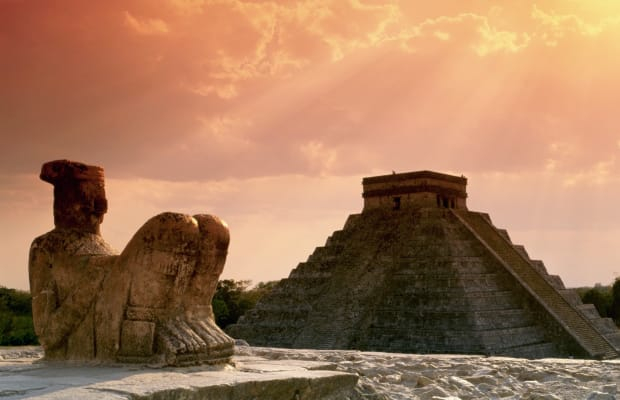The Maya Was an Advanced Society
Around the sixth century A.D., the Maya Empire, located in the tropical lowlands of what is now Guatemala, achieved its pinnacle of power and influence. Agriculture, pottery, hieroglyphic writing, calendar-making, and mathematics were among the Maya's many talents, and they left behind an incredible amount of spectacular building and symbolic artwork. However, by A.D. 900, most of the Maya's large stone towns had been abandoned, and researchers have argued what caused this abrupt decline since the 19th century.
Maya elites were literate and developed a complicated hieroglyphic writing system. In the pre-Columbian Americas, their writing system was the most advanced. The Maya used screen fold books to record their history and ritual knowledge, of which only three undisputed instances remain, the rest having been destroyed by the Spanish. In addition, numerous Maya texts have been discovered on stelae and pottery. The Maya created a complex system of linked ritual calendars and used mathematics that includes one of the oldest examples of the explicit zero in human history.
The Maya built a wide range of structures and left a large architectural heritage. Various art forms and hieroglyphic writings are also incorporated into Maya building. Maya masonry building demonstrates craft specialization, centralized organization, and the political means to mobilize a huge workforce in Maya society. A big elite dwelling at Copán is estimated to have taken 10,686 man-days to construct, compared to 67 man-days for a commoner's hut.
Besides, the Maya lives in community. They were in the same place and had fortified houses. In general, The Maya was an advanced society compared to that time.












